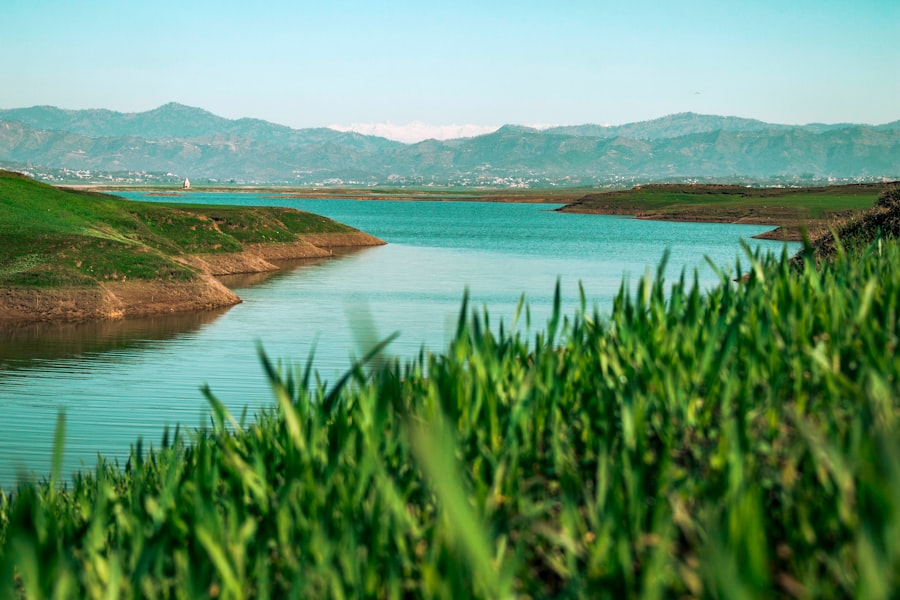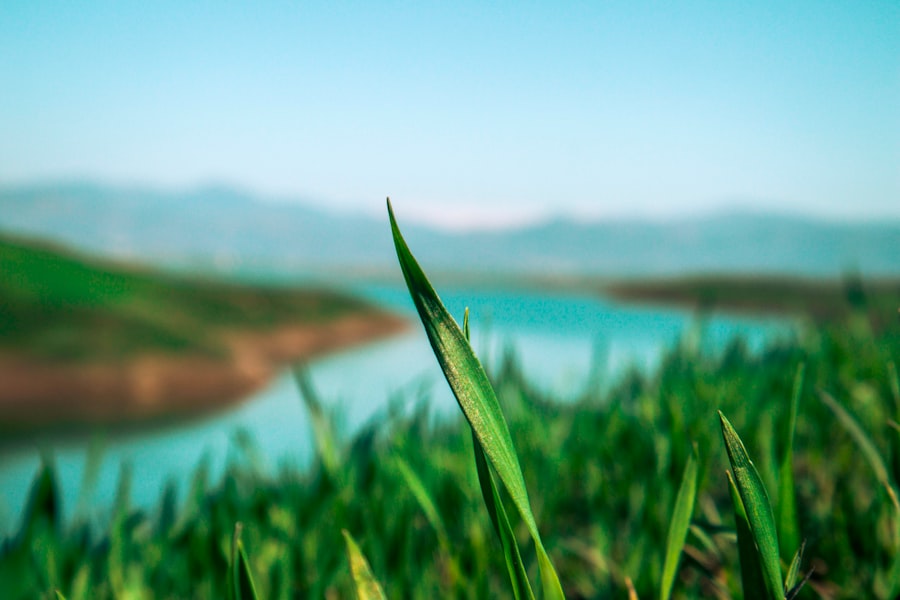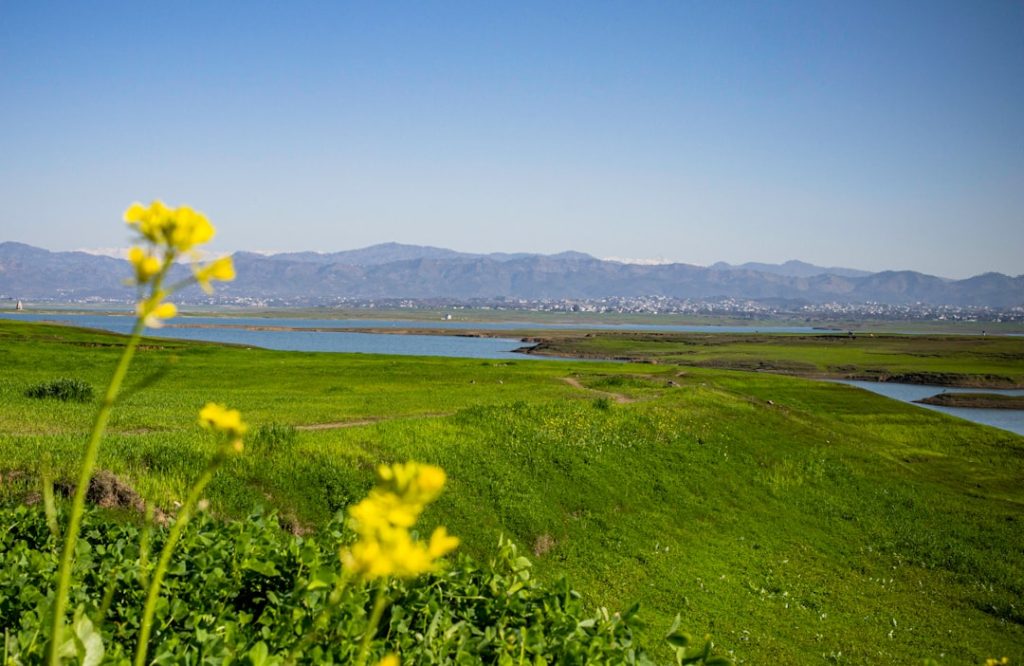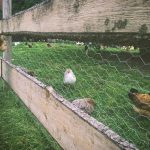Chickens are highly susceptible to heat stress, as they lack sweat glands and rely on panting to regulate their body temperature. When temperatures rise, chickens can quickly become overheated, leading to a range of health issues. Heat stress can cause decreased egg production, poor egg quality, reduced feed intake, and even death in severe cases.
Additionally, heat stress can weaken the immune system of chickens, making them more susceptible to diseases and infections. It’s important for poultry farmers to understand the impact of heat on chickens in order to implement effective strategies to mitigate its effects. Furthermore, heat stress can have a significant impact on the overall welfare and well-being of chickens.
When chickens are exposed to high temperatures for prolonged periods, they can experience discomfort, distress, and even behavioral changes. This can lead to increased aggression, feather pecking, and cannibalism within flocks. In extreme cases, heat stress can lead to heat stroke, which is a life-threatening condition for chickens.
Therefore, it is crucial for poultry farmers to be aware of the signs of heat stress in chickens and take proactive measures to prevent its negative impact on their flock.
Table of Contents
- 1 Providing adequate shade and ventilation
- 2 Ensuring access to cool, fresh water
- 3 Using cooling techniques such as misting or fans
- 4 Adjusting feeding schedules for cooler times of day
- 5 Monitoring and managing heat stress in chickens
- 6 Implementing additional measures for extreme heat events
- 7 FAQs
- 7.1 What are some tips for keeping chickens cool in the Texas summer?
- 7.2 How important is shade for chickens in the Texas summer?
- 7.3 What are some ways to ensure chickens have access to cool water in the Texas summer?
- 7.4 Are fans or misters effective for keeping chickens cool in the Texas summer?
- 7.5 What are signs that chickens may be overheating in the Texas summer?
Key Takeaways
- Heat stress can have a significant impact on chickens, affecting their health and productivity
- Providing adequate shade and ventilation is crucial to help chickens cope with high temperatures
- Access to cool, fresh water is essential for chickens to stay hydrated and regulate their body temperature
- Using cooling techniques such as misting or fans can help lower the temperature in chicken coops
- Adjusting feeding schedules to cooler times of day can help reduce heat stress in chickens
Providing adequate shade and ventilation
Ensuring Proper Ventilation
One of the most important measures for preventing heat stress in chickens is to provide adequate shade and ventilation in their living environment. This can be achieved by ensuring that chicken coops and runs are well-ventilated with good air circulation. Natural ventilation can be enhanced by strategically placing windows, vents, and doors to allow for cross-ventilation.
Providing Shade
Additionally, providing shade in the form of trees, shrubs, or artificial structures can help to reduce the direct exposure of chickens to the sun’s rays. Furthermore, it’s essential to consider the materials used in constructing chicken coops and runs. Materials that absorb and retain heat, such as metal or dark-colored roofing, should be avoided.
Choosing the Right Materials
Instead, lighter-colored materials that reflect sunlight and heat should be used to help maintain a cooler environment for the chickens. By providing adequate shade and ventilation, poultry farmers can help to reduce the risk of heat stress in their flocks and create a more comfortable living space for their chickens.
Ensuring access to cool, fresh water

Another crucial factor in preventing heat stress in chickens is ensuring that they have access to cool, fresh water at all times. Water is essential for regulating body temperature and keeping chickens hydrated during hot weather. Poultry farmers should regularly check water sources to ensure that they are clean and free from contaminants.
Additionally, water containers should be placed in shaded areas to prevent them from heating up in the sun. In extreme heat, it may be necessary to provide additional water sources or use larger water containers to accommodate increased water consumption by chickens. Some farmers also use techniques such as adding ice or frozen water bottles to the water containers to help keep the water cool.
By ensuring that chickens have access to an ample supply of cool, fresh water, poultry farmers can help to prevent dehydration and reduce the risk of heat stress in their flock.
Using cooling techniques such as misting or fans
In addition to providing shade and ventilation, poultry farmers can use various cooling techniques to help lower the temperature in chicken coops and runs. One effective method is the use of misting systems, which release a fine spray of water into the air to help cool the surrounding environment. Misters can be installed in chicken coops or run areas to provide a refreshing mist that helps to lower the ambient temperature.
Another cooling technique is the use of fans to improve air circulation and reduce heat buildup. Fans can be strategically placed in chicken coops or run areas to help move air and create a cooling breeze for the chickens. Additionally, evaporative cooling pads or curtains can be installed in chicken coops to help lower the temperature by drawing in outside air and cooling it through evaporation.
By utilizing these cooling techniques, poultry farmers can help to create a more comfortable environment for their chickens and reduce the risk of heat stress during hot weather.
Adjusting feeding schedules for cooler times of day
During periods of extreme heat, poultry farmers can adjust feeding schedules to coincide with cooler times of the day. Feeding chickens during the early morning or late evening when temperatures are lower can help to reduce the metabolic heat generated by digestion. Additionally, providing smaller, more frequent meals throughout the day can help to prevent excessive heat production in chickens.
Furthermore, it’s important to consider the type of feed provided during hot weather. Feeds that are high in protein or fat can increase metabolic heat production in chickens, so it may be beneficial to adjust the feed composition during periods of extreme heat. Poultry farmers can consult with nutritionists or veterinarians to develop feeding strategies that are tailored to the specific needs of their flock during hot weather.
By adjusting feeding schedules and considering feed composition, poultry farmers can help to minimize the impact of heat stress on their chickens and promote better overall health and well-being.
Monitoring and managing heat stress in chickens

Recognizing the Signs of Heat Stress
Poultry farmers must closely monitor their flocks for signs of heat stress, which can include panting, wing spreading, reduced activity, decreased feed intake, and drooping wings. Additionally, chickens may exhibit behavioral changes such as increased aggression or feather pecking during periods of extreme heat.
Taking Action to Manage Heat Stress
When signs of heat stress are observed, poultry farmers should take immediate action to help their chickens cool down. This may involve providing additional shade, increasing ventilation, or using cooling techniques such as misting or fans. It’s also important to ensure that chickens have access to cool, fresh water at all times and to monitor their water consumption closely.
Emergency Measures for Severe Heat Stress
In severe cases of heat stress, it may be necessary to move chickens to a cooler location or provide emergency measures such as wetting down the ground or using ice packs to help lower the ambient temperature. By monitoring their flocks closely and taking proactive measures to manage heat stress, poultry farmers can help to minimize its negative impact on their chickens.
Implementing additional measures for extreme heat events
In extreme heat events, additional measures may be necessary to protect chickens from the effects of heat stress. This may include temporarily reducing stocking density in chicken coops or runs to allow for better air circulation and more space for individual chickens. Poultry farmers can also consider using temporary shade structures or portable misting systems to provide relief from high temperatures.
Furthermore, it’s important for poultry farmers to have a contingency plan in place for extreme heat events, including access to emergency supplies such as extra water containers, ice packs, or cooling pads. It may also be beneficial to have a backup power source for fans or misting systems in case of power outages during hot weather. Additionally, poultry farmers should stay informed about weather forecasts and be prepared to take action in advance of predicted extreme heat events.
By implementing these additional measures and having a plan in place for extreme heat events, poultry farmers can help to protect their flocks from the potentially devastating effects of heat stress. In conclusion, heat stress is a significant concern for poultry farmers, as it can have a range of negative effects on the health and well-being of chickens. By understanding the impact of heat on chickens and implementing proactive measures such as providing shade and ventilation, ensuring access to cool, fresh water, using cooling techniques such as misting or fans, adjusting feeding schedules for cooler times of day, monitoring and managing heat stress in chickens, and implementing additional measures for extreme heat events, poultry farmers can help to mitigate the effects of heat stress and promote better overall welfare for their flocks.
It’s essential for poultry farmers to be proactive in preventing and managing heat stress in their flocks in order to ensure the health and productivity of their chickens.
If you’re looking for tips on how to keep your chickens cool in the Texas summer, you may also be interested in learning about different types of chicken coops that can help provide shade and ventilation for your flock. Check out this article on farmhouse chicken coops for some ideas on how to create a comfortable living space for your chickens during the hot summer months.
FAQs
What are some tips for keeping chickens cool in the Texas summer?
Some tips for keeping chickens cool in the Texas summer include providing plenty of shade, ensuring access to fresh, cool water at all times, and using fans or misters to create a cooler environment in the coop.
How important is shade for chickens in the Texas summer?
Shade is extremely important for chickens in the Texas summer, as it helps them avoid overheating and sunburn. Providing ample shade in the form of trees, tarps, or other structures can help keep chickens cool and comfortable.
What are some ways to ensure chickens have access to cool water in the Texas summer?
To ensure chickens have access to cool water in the Texas summer, it’s important to regularly refill water containers with fresh, cool water. Adding ice to the water or using insulated waterers can also help keep the water cool for longer periods of time.
Are fans or misters effective for keeping chickens cool in the Texas summer?
Fans and misters can be effective for keeping chickens cool in the Texas summer, especially in the coop or run. Fans can help circulate air and reduce the temperature, while misters can create a cooling effect as the water evaporates.
What are signs that chickens may be overheating in the Texas summer?
Signs that chickens may be overheating in the Texas summer include panting, holding their wings away from their bodies, and reduced activity. It’s important to monitor chickens closely during hot weather and take steps to keep them cool and comfortable.
Meet Walter, the feathered-friend fanatic of Florida! Nestled in the sunshine state, Walter struts through life with his feathered companions, clucking his way to happiness. With a coop that’s fancier than a five-star hotel, he’s the Don Juan of the chicken world. When he’s not teaching his hens to do the cha-cha, you’ll find him in a heated debate with his prized rooster, Sir Clucks-a-Lot. Walter’s poultry passion is no yolk; he’s the sunny-side-up guy you never knew you needed in your flock of friends!







